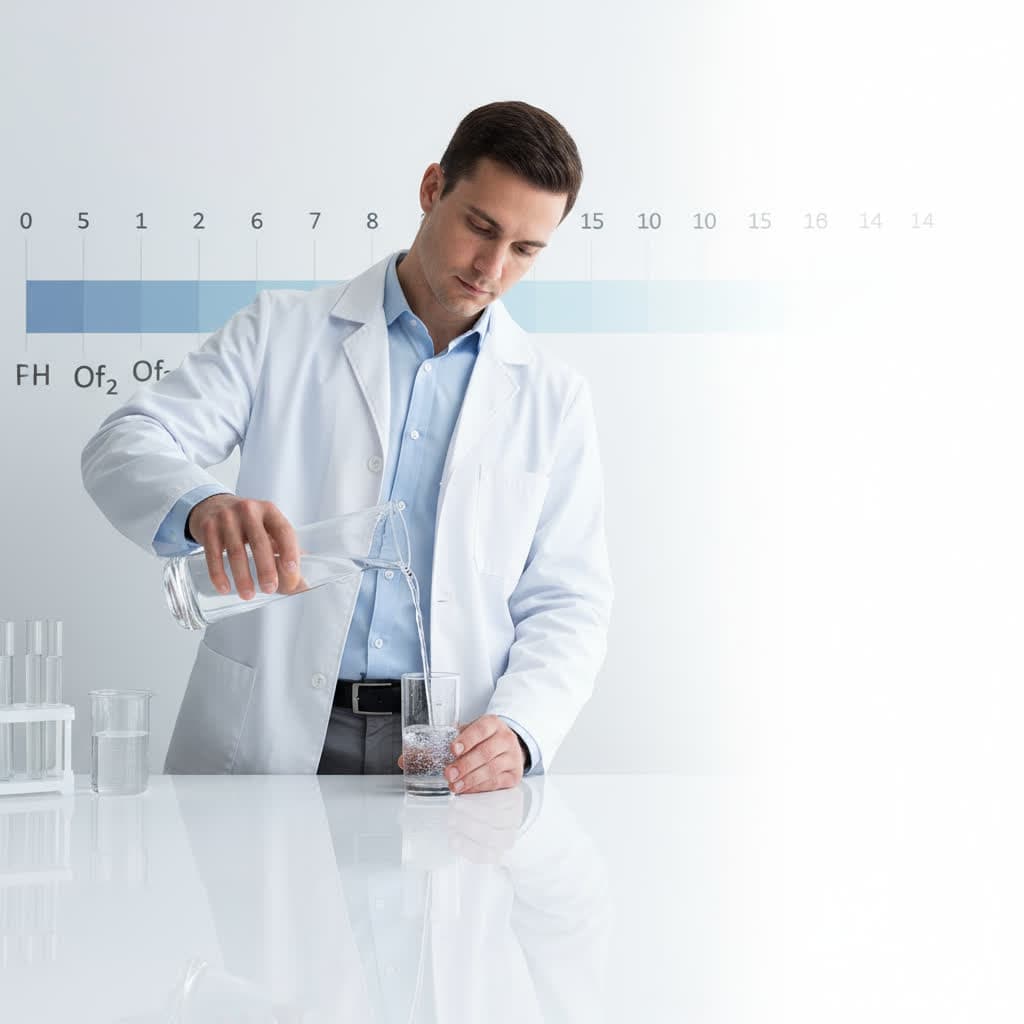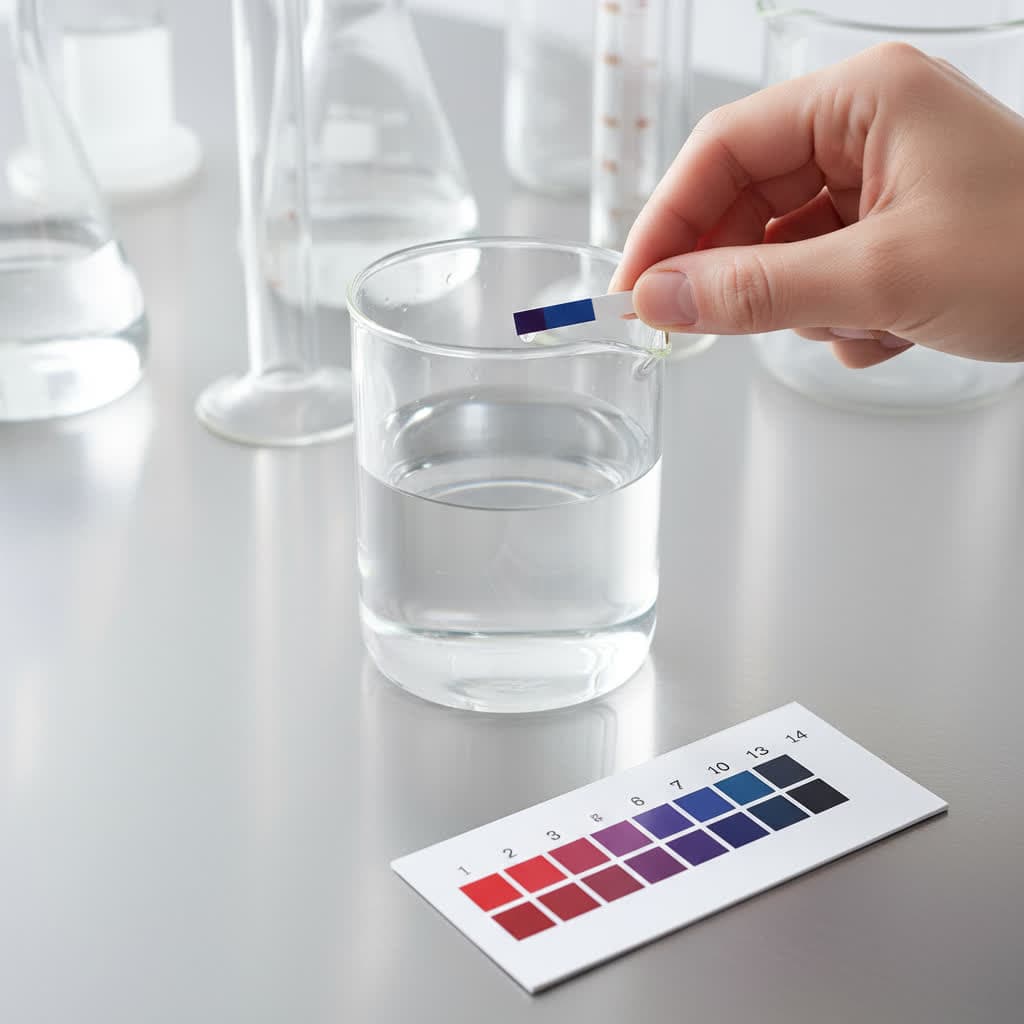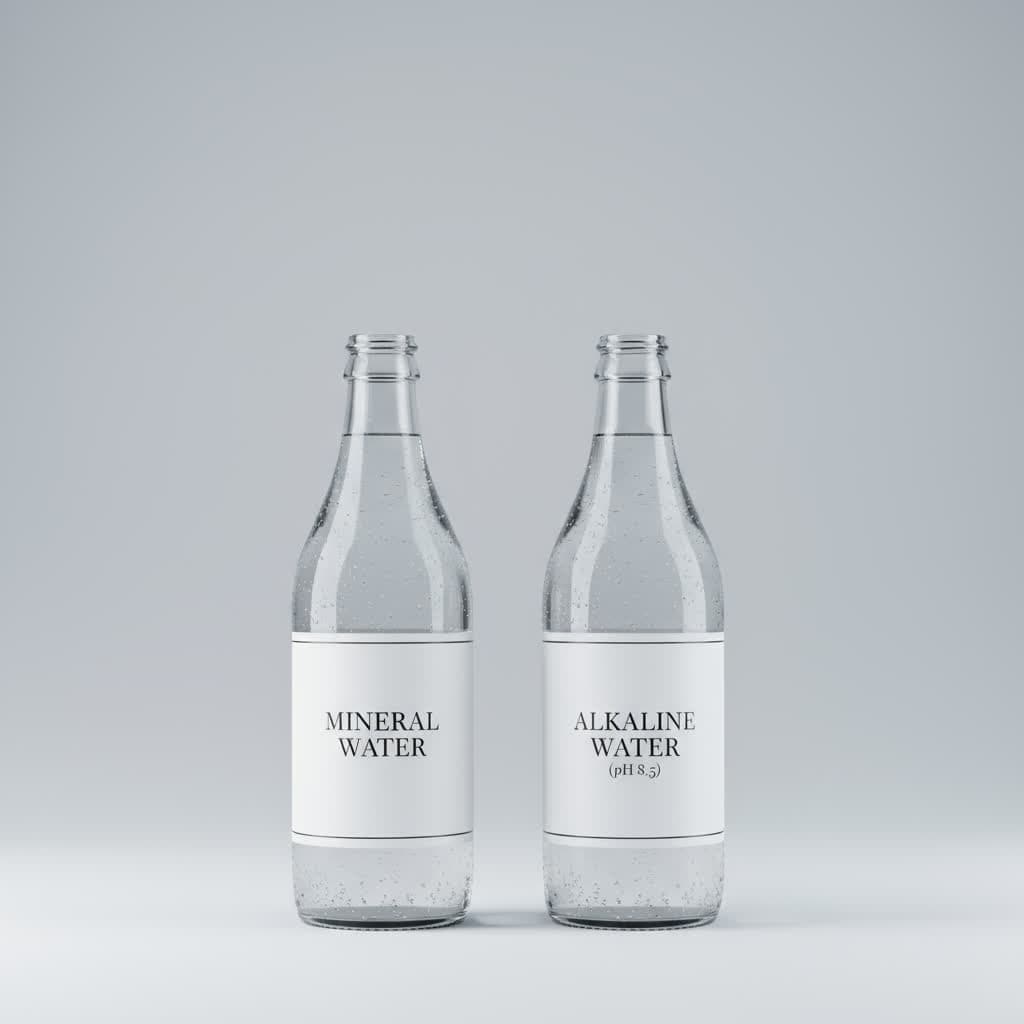Alkaline Water: Benefits, Myths, and Scientific Truth
Is alkaline water good for you? This question has gained popularity as alkaline water is hyped as a cure-all, claimed to improve hydration, balance your body’s pH, and even prevent diseases. In this article, we’ll debunk common myths, present science-backed findings, and clarify when water pH truly matters for health. Along the way, we’ll compare alkaline vs mineral water, explain alkaline water pH, and discuss actual alkaline water benefits (if any) according to research. The goal is to give you a clear, trustworthy answer so you can decide if alkaline water is worth it.

What Is Alkaline Water?
Alkaline water is simply water with a higher-than-neutral pH level. The pH scale measures how acidic or basic a substance is, ranging from 0 (very acidic) to 14 (very alkaline), with 7 being neutral. Regular tap water is typically around pH 7 (neutral), whereas alkaline water pH is usually around 8 or 9. By definition, alkaline water also contains alkalizing minerals (like calcium, magnesium, or bicarbonate) that raise its pH level.
There are both natural and artificial sources of alkaline water. Natural alkaline water comes from springs or wells that pass through mineral-rich rocks, picking up minerals that increase the pH. This means some mineral water (bottled water from natural springs) can naturally be alkaline if it contains sufficient minerals. On the other hand, many bottled alkaline waters are artificially alkaline – produced by adding minerals or using an “ionizer” device (electrolysis) to raise the water’s pH. This process doesn’t necessarily add nutritious minerals; it mainly changes the pH and the water’s oxidation-reduction potential (ORP). In short, alkaline water is less acidic than plain water, either due to naturally dissolved minerals or through mechanical treatment.

Alkaline Water vs. Mineral Water
It’s easy to confuse alkaline water with mineral water, and sometimes they overlap, but they’re not identical. Mineral water is water sourced from mineral-rich underground springs, containing natural minerals like calcium, magnesium, and potassium in trace amounts. These minerals can impart health benefits (for example, contributing to your daily mineral intake) and often give the water a subtle taste. Mineral water isn’t defined by pH – it might be neutral, slightly acidic, or slightly alkaline depending on its source.
Alkaline water, in contrast, is defined by pH (>7) rather than source. Some alkaline water on the market is essentially mineral water that naturally has a higher pH due to dissolved minerals. But other alkaline water is purified water that’s been fortified or ionized purely to raise its pH, sometimes with only a few added minerals. The main selling point of alkaline water is its higher pH, whereas the selling point of mineral water is its mineral content.
Which is better? From a health perspective, there’s no clear winner for most people. Both hydrate you, and mineral water provides nutrients, but the higher pH of alkaline water by itself doesn’t make it a superior health elixir. The most important thing is that your drinking water is safe, clean, and palatable – whether it’s mineral, alkaline, or plain tap water.

Claimed Benefits of Alkaline Water (Myths vs. Reality)
Proponents of alkaline water make a lot of bold claims. Let’s break down the most common claims and see what science says about each:
- “Balances Body pH / Detoxifies the Body” — Myth. Marketers often claim alkaline water will neutralize excess acid in your bloodstream, improving health and “detoxing” you. The reality: your body tightly regulates its own pH balance no matter what you drink or eat. Drinking water that is a bit more alkaline won’t significantly change your blood pH or “detox” you – your lungs and kidneys already do that job.
- “Alkaline Water Hydrates Better” — Unproven (very limited evidence). Staying well-hydrated is crucial, but evidence that alkaline water systematically hydrates better is weak. One small post-exercise study found a slight edge, but how much you drink matters more than the type. If alkaline water makes you drink more because you like the taste, great – but plain water works when you drink enough.
- “Improves Digestion and Reduces Acid Reflux” — Possibly helpful for reflux. There’s no evidence alkaline water broadly improves digestion. For acid reflux, however, drinking slightly alkaline water and adopting a plant-forward diet may help reduce symptoms in some people. Think of it as a supporting tactic, not a cure.
- “Strengthens Bones” — Preliminary, not conclusive. A few small, short-term studies suggest alkaline water might slightly improve certain bone markers when combined with standard care, but evidence is mixed and not strong enough for general recommendations.
- “Prevents Cancer and Chronic Diseases” — Myth. There’s no credible evidence that alkaline water prevents cancer or major chronic diseases. Be wary of marketing claims that overpromise.
- “Anti-Aging and Skin Benefits” — Myth. No solid studies show alkaline water is better than regular water for skin or aging. Good hydration helps skin overall, but pH alone isn’t a magic lever.
In summary, most touted alkaline water benefits are not proven. Possible niches: acid reflux relief and personal preference (if it helps you drink more). Otherwise, consider it optional, not essential.
Does Water pH Matter for Your Health?
For most healthy people, water pH by itself isn’t a critical factor – as long as the water is safe, tastes good, and is within a normal palatable range. Extremely low pH (acidic) can corrode pipes, while very high pH (strongly alkaline) can taste bitter and cause mineral buildup. In rare cases, excessively alkaline, highly mineralized water could be an issue for people with kidney problems (e.g., potassium handling). Day to day, your body maintains its internal pH regardless of the pH of the water you drink.
Practical take: Aim for clean water you like to drink. If slightly alkaline water soothes your reflux or simply encourages you to hydrate more, that’s a reasonable personal choice.
The Bottom Line: Should You Drink Alkaline Water?
Alkaline water is generally safe and may offer limited benefits in specific situations (like mild reflux), but it’s not a necessity for health. If you enjoy the taste or it helps you stay consistent with hydration, go for it. Otherwise, plain water – paired with a balanced diet – is more than enough for most people.
Quick takeaways
- Hydration first: The amount you drink matters more than the label.
- Diet over hype: Fruits/veggies and overall habits drive health; water pH doesn’t.
- Cost vs value: Alkaline water can be pricey without proven broad benefits.
- Special cases: Reflux sufferers might find some relief with slightly alkaline water.
- Listen to your body: Choose water you enjoy and will drink consistently.
Find Your Local Hydration Needs
Get personalized hydration recommendations based on your local climate and weather conditions: